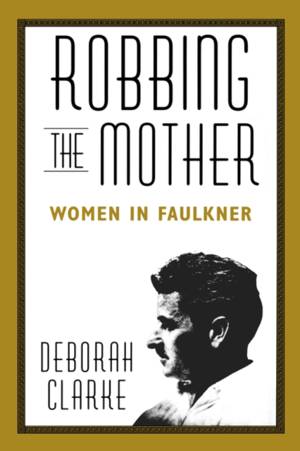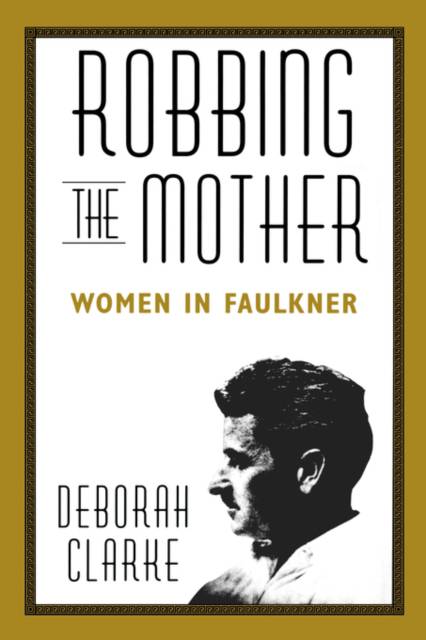
- Afhalen na 1 uur in een winkel met voorraad
- Gratis thuislevering in België vanaf € 30
- Ruim aanbod met 7 miljoen producten
- Afhalen na 1 uur in een winkel met voorraad
- Gratis thuislevering in België vanaf € 30
- Ruim aanbod met 7 miljoen producten
Zoeken
Omschrijving
William Faulkner claimed that it may be necessary for a writer to "rob his mother," should the need arise. "If a writer has to rob his mother, he will not hesitate; the 'Ode on a Grecian Urn' is worth any number of old ladies," he remarked. This study of Faulkner's paradoxical attitude toward women, particularly mothers, will stimulate debate and concern, for his novels are shown here to have presented them as both a source and a threat to being and to language. "My reading of Faulkner," the author says, "attempts more than an identification of female stereotypes and an examination of misogyny, for Faulkner, who almost certainly feared and mistrusted women, also sees in them a mysterious, often threatening power, which is often aligned with his own creativity and the grounds of his own fiction." Drawing on both American and French feminist criticism, Robbing the Mother explores Faulkner's artistic vision through the maternal influence in such works as The Sound and the Fury; As I Lay Dying; Sanctuary; Absalom, Absalom!; The Hamlet; Light in August; and The Wild Palms.
Specificaties
Betrokkenen
- Auteur(s):
- Uitgeverij:
Inhoud
- Aantal bladzijden:
- 184
- Taal:
- Engels
Eigenschappen
- Productcode (EAN):
- 9781578068807
- Verschijningsdatum:
- 1/01/2006
- Uitvoering:
- Paperback
- Formaat:
- Trade paperback (VS)
- Afmetingen:
- 152 mm x 229 mm
- Gewicht:
- 276 g

Alleen bij Standaard Boekhandel
+ 118 punten op je klantenkaart van Standaard Boekhandel
Beoordelingen
We publiceren alleen reviews die voldoen aan de voorwaarden voor reviews. Bekijk onze voorwaarden voor reviews.











